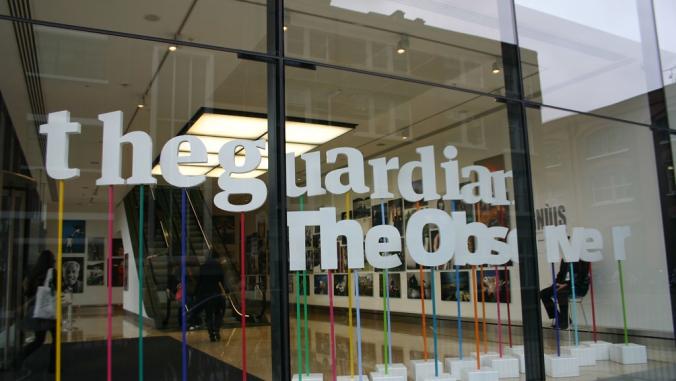A lot on their plate: Investors turn heat up on global food giants McDonald's, Restaurant Brands International and Yum! Brands
With consumer tastes changing and closer focus on climate goals, funders ask fast food companies to report and address their impacts.

A Burger King storefront in Beijing, China. Burger King claims to serve more than 11 million guests per day in 91 countries and territories around the world.
We're only a month in, and in some quarters 2019 already has been labeled the "year of the vegan." From vegan sausage rolls to climate-friendly diets, barely a day has gone by without some news of how meat-light meals are better for consumer health and the planet.
But while consumer habits may be changing, are those of the fast food companies that have built up billion-dollar businesses around the global desire for rapidly served, competitively priced, meat-based meals? Not fast enough for some investors, it seems. A coalition of investors representing more than $6.5 trillion in assets under management called on six of the world's largest fast food companies Tuesday to do more to address greenhouse gas emissions and water use in the animal agriculture industry.
The roster includes some of the world's largest and most influential institutional investors, among them Canada's BMO Global Asset Management, U.K.-based Aviva Investors and Dutch investment giant Aegon Asset Management.
In much the same way investors have been pressuring fossil fuel companies to address their climate impact in recent years, today's cohort of investors seek to crank up the pressure on the global food industry's most visible consumer-facing brands. In letters to executives in charge of Domino's Pizza, McDonald's, Burger King owners Restaurant Brands International, Chipotle Mexican Grill, Wendy's Co. and Yum! Brands, the investors call for the companies to publish quantitative, time-bound greenhouse gas targets for their meat and dairy supply chain, commit to public reporting on those targets annually, and complete a scenario analysis demonstrating how their business strategy would cope under differing climate scenarios.
"As investors, we applaud your company's strong financial performance," the letter reads. "However, we are keen to see the company take a leadership role in decoupling this growth from the mounting environmental impacts and risks linked to the production of animal protein products, which can threaten [company's] long-term financial sustainability."
The list of demands almost exactly mirrors what progressive investors and campaigners were demanding from the likes of Shell. The oil giant finally gave in to investor pressure in December and agreed to set hard goals to cut emissions.
And as with the fossil fuel industry, the investors insist their action is motivated as much by their fiduciary duty as by their concern for the planet's health. The letters, facilitated by non-profit Ceres and the FAIRR Initiative, a network of investors concerned about intensive livestock production, are calling for their demands to be answered by March amid claims business-as-usual threatens the long-term sustainability of fast food businesses.
"Other high-emitting industries, such as cars or oil and gas, are beginning to set clear yet ambitious climate targets, making animal agriculture one of the world's highest-emitting sectors without a low-carbon plan," said Jeremy Coller, founder of FAIRR and chief investment officer of Coller Capital. "A failure to tackle these major environmental problems in corporate supply chains puts the long-term financial sustainability of these household names under threat. Investors are calling for more strategic and innovative thinking to manage these risks."
It is hard to underestimate the scale of the impact animal agriculture has on the environment. Research (PDF) from the nonprofit World Resources Institute (WRI) suggests if the industry is allowed to continue with business-as-usual, agricultural emissions, including those from meat and dairy, are on course to eat up 70 percent of the world's 2050 climate budget under a 2 degrees Celsius scenario. This includes the impact of land use changes, such as the clearing of precious biodiverse habitats such as the Amazon rainforest, for cattle ranching and soy production. To pull its weight in the global effort to limit warming to 2C, the agricultural sector must rein in its 2050 emissions from a projected 15 gigatonnes a year to just four, WRI reckons.
Despite the business risks that overshooting this level of warming would bring, including but not limited to increased extreme weather risk, significant shifts in consumer geographies and lifestyles, and severe shortages of water and high-quality farmland, FAIRR contends its research demonstrates agricultural commodity suppliers are only taking limited action to mitigate their climate impact.
Of course, the fast food giants likely will respond that they already boast some fairly sophisticated sustainability strategies. Most of the leading brands have taken steps to tackle packaging waste, have begun to expand their vegetarian options and, in the case of McDonald's in particular, have launched initiatives to curb water use and greenhouse gas emissions in their supply chains.
But investors remain concerned that these initiatives are not advanced enough and do not reach deep enough into the supply chain. The investor letter sent Tuesday to the fast food giants, seen by BusinessGreen, points out the meat sector was the lowest performing industry in a 2018 Ceres analysis on sustainable water use, while many of the largest meat suppliers in the United States and China are failing on numerous counts to report on their greenhouse gas emissions, deforestation impacts or water use.
"The animal and fish production industry remains poorly scrutinized relative to the broader food industry," FAIRR points out in a briefing also released Tuesday. "For instance, it is under-represented within most global benchmarks, even if it is among the most over-exposed in terms of risks. Fewer than 25 percent of the companies in the Coller FAIRR Protein Producer Index are invited to participate in the Dow Jones Corporate Sustainability Assessment or represented in CDP's risk databases, although they are the largest publicly listed animal protein producers globally."
And of course, consumer tastes are also changing. The proportion of vegetarian and vegan households is growing rapidly in some countries, particularly among younger consumers, a phenomenon which is creating new food giants. The rise of non-dairy milks, for example, has been almost unstoppable. One brand, Oatly, has ramped up production 1,250 percent since its 2016 launch in the United States. Meanwhile, plant-based meat and dairy producer Just, formerly known as Hampton Creek, was valued at $1 billion in 2017.
So doing nothing is no longer a viable course of action for the fast food giants in investors' eyes. "Far-sighted investors cannot ignore the headwinds facing the meat and dairy sector," said Alice Evans, co-head of responsible investment at BMO Global Asset Management. "Increased environmental regulation, rising consumer demand for plant-based food and fears over water pollution from intensive farms are all ingredients in the rising threat to the long-term value of the fast food multinationals. This investor engagement is further evidence that capital markets are putting sustainable environmental management on the menu for the fast food sector."
As January draws to a close, meat will be back on the menu for the tens of thousands of Brits completing the "Veganuary" challenge. But the goal of the initiative is to convert some to veganism while convincing many more they can reduce their meat intake and curb their environmental impact in the process. It appears to be working, at least amongst younger demographics that for decades have driven much of the success of the global fast food giants.
Consequently, for investors the fear fast food may be at risk of under of a "carbon bubble" of its own is leaving a bad taste in the mouth. With oil giants finally responding to their climate demands, expect emboldened investors to ramp up pressure on the next industry in their crosshairs.
This story first appeared on:





